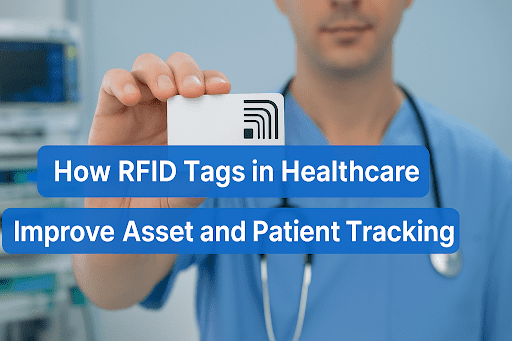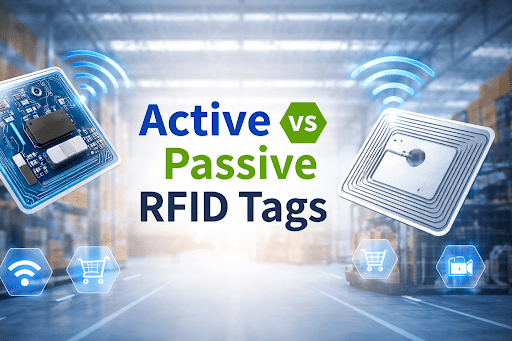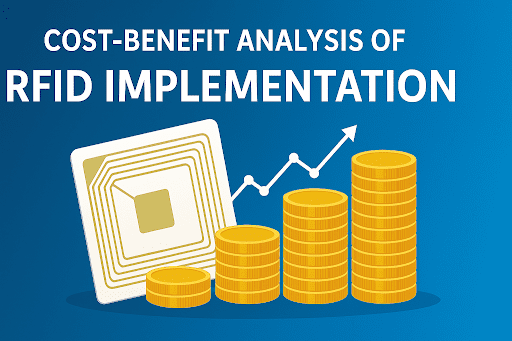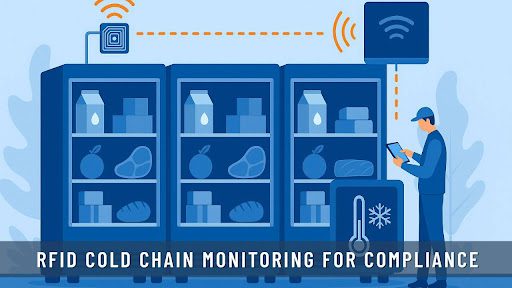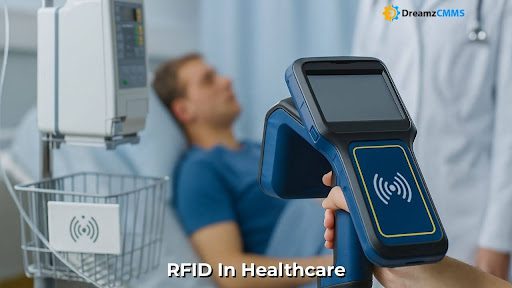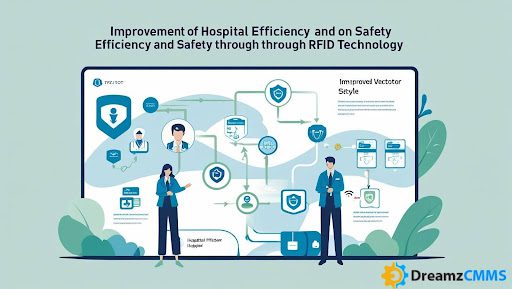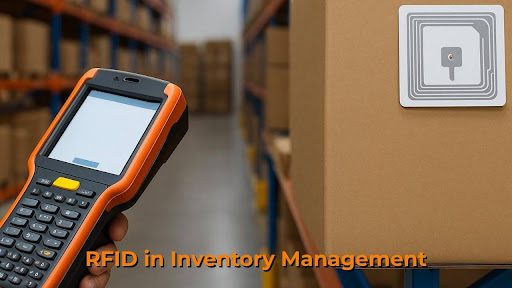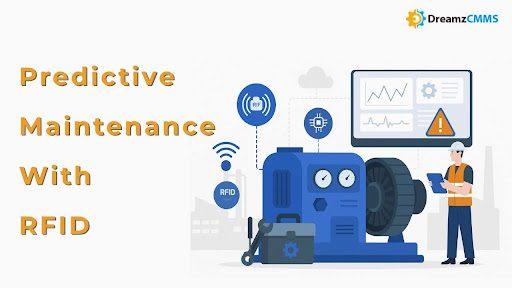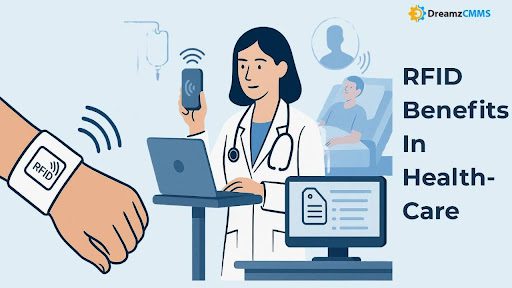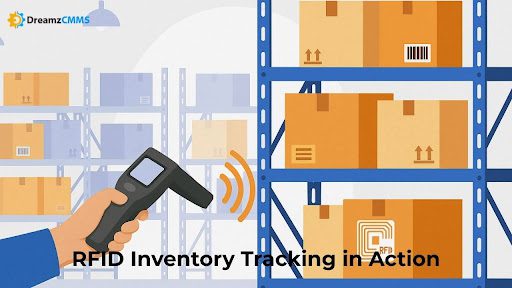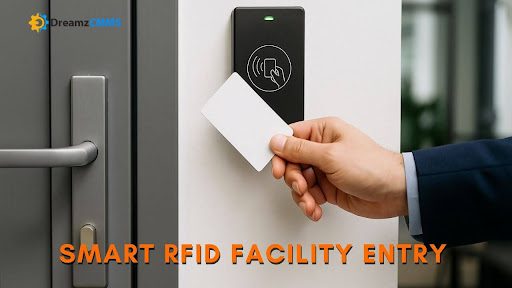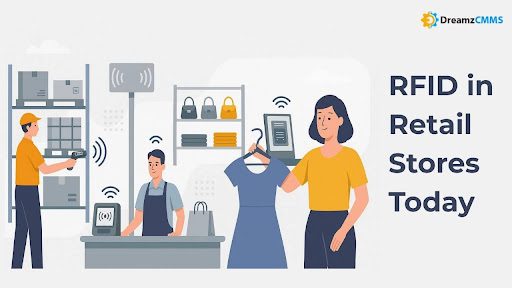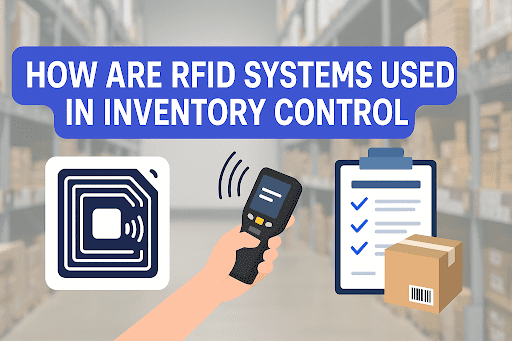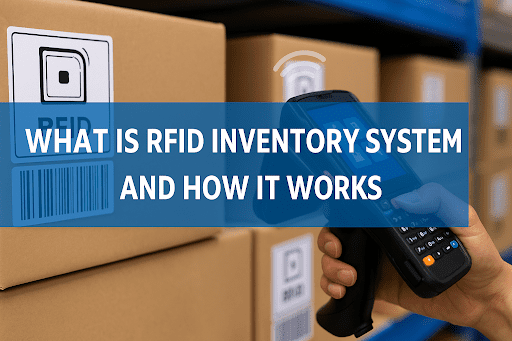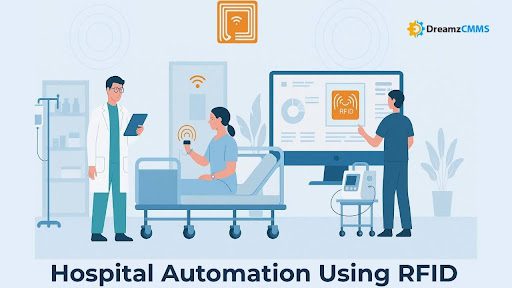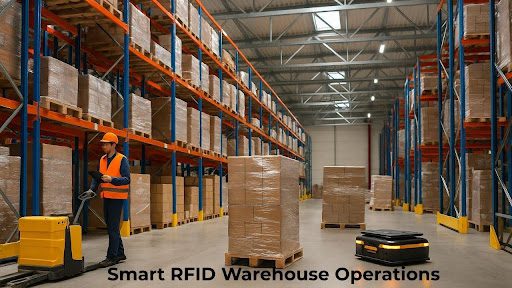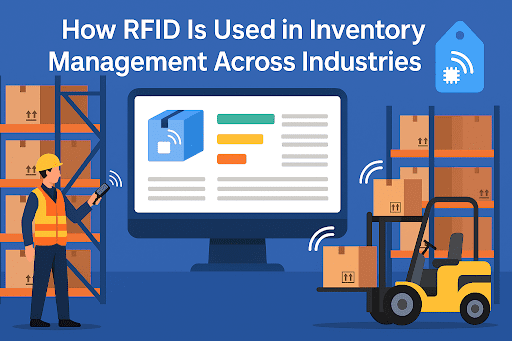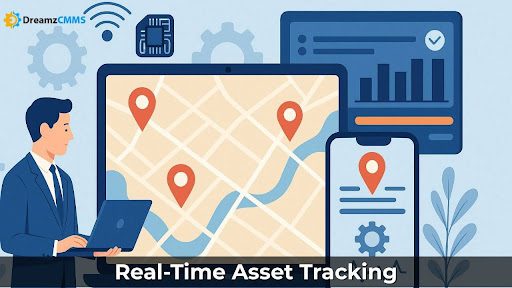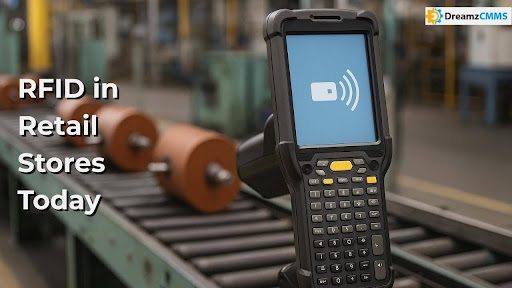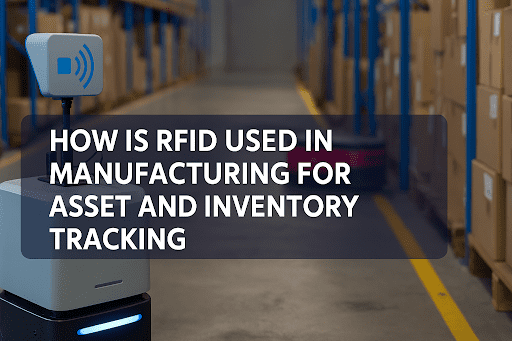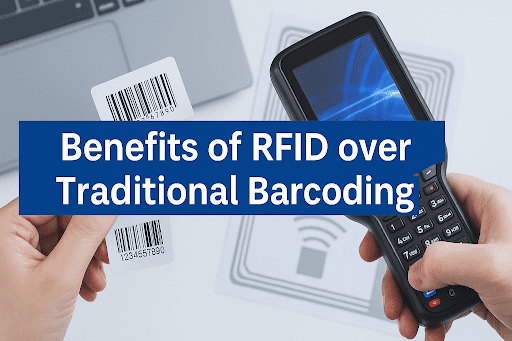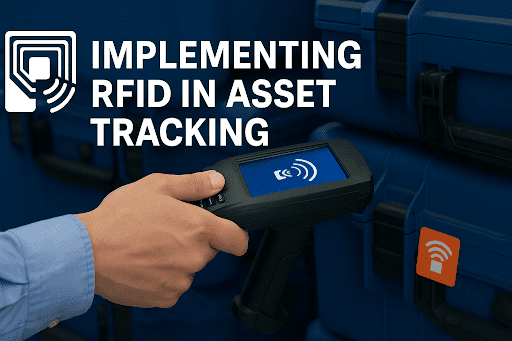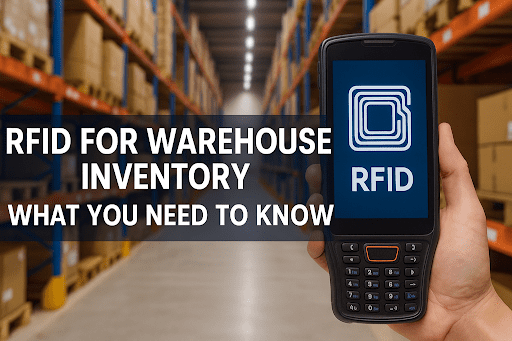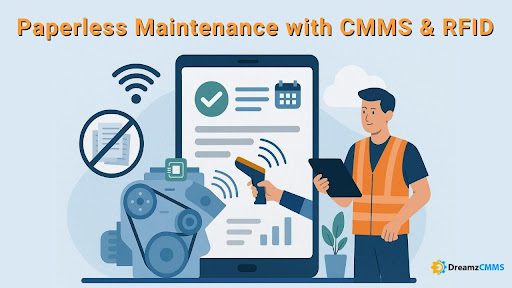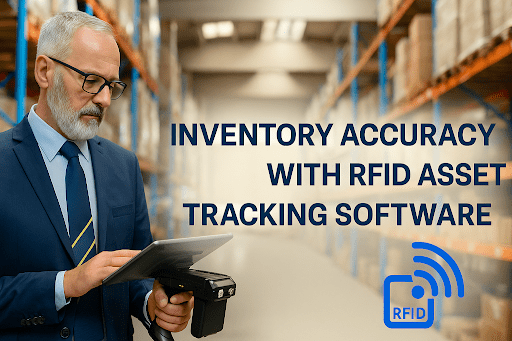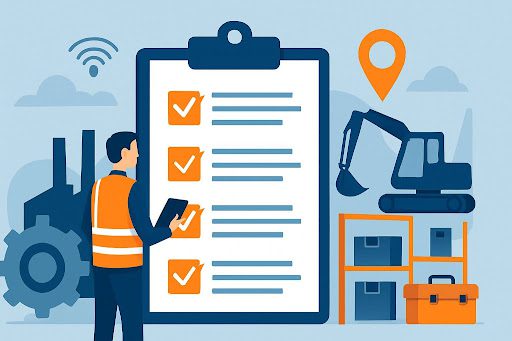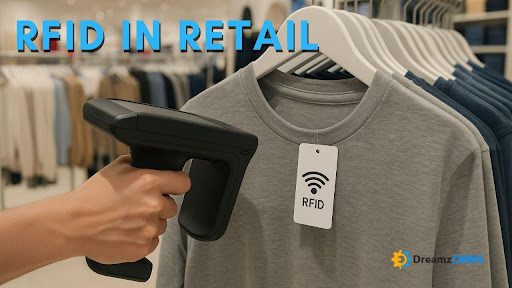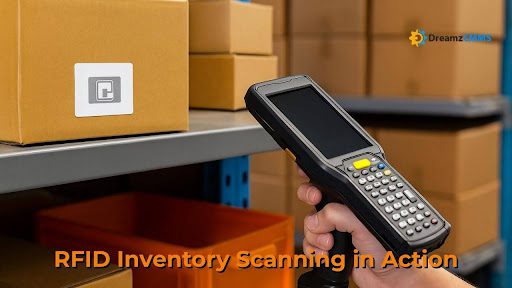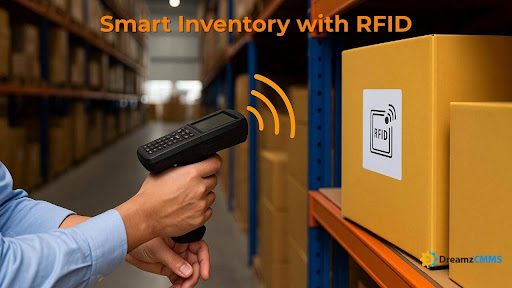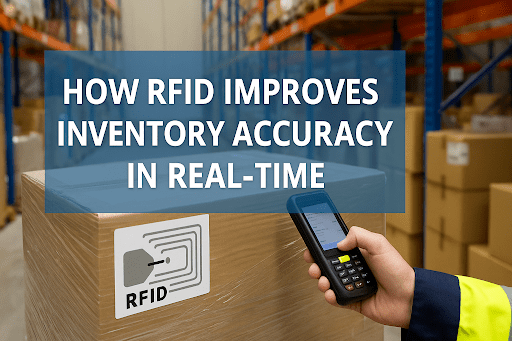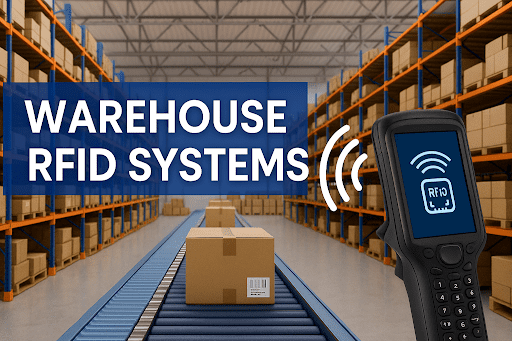 BACK TO Blog
BACK TO Blog
Asset Rental Management
RFID Asset Tracking
Real-time Location Tracking with RFID Technolgy
- May 30, 2025
- DreamzCMMS Team
- 10 minutes read
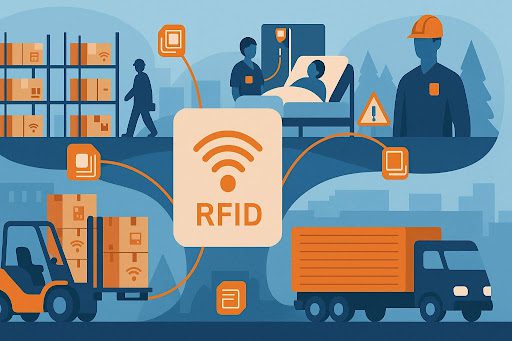
- May 30, 2025
- DreamzCMMS Team
- 10 minutes read
Businesses today operate in an accelerated environment where they must monitor and control and optimize their asset movements more than ever before. Real-Time Location Tracking with RFID has transformed business operations by enabling the precise tracking of equipment across large warehouses and personnel at construction sites and goods during transportation. The technology enables automation along with accurate tracking and enhanced visibility which are critical elements for smart asset management systems.
RFID (Radio Frequency Identification) systems utilize time and location tracking applications in this blog through an analysis of system components and industrial benefits along with operational strategy adoption.
Looking to modernize your asset maintenance process?Leverage RFID-powered visibility and control with our Asset Maintenance Management Software to reduce downtime, streamline operations, and boost performance. |
What is Real-Time Location Tracking with RFID?
RFID tags enable automatic identification and real-time location tracking of objects or people through RFID reader systems. The continuous wireless data exchange ability of RFID surpasses barcode requirements by enabling real-time monitoring throughout dynamic environments. For a detailed comparison, check out our blog on Benefits of RFID over Traditional Barcoding. This forms the basis for advanced RFID-Based Asset Tracking and Real-Time Asset Visibility.
An RFID tracking system needs three essential components for operation.
- RFID Tags – Attached to items or individuals; these store and transmit data.
- RFID Readers – Fixed or mobile devices that detect tags and transmit data to a central system.
- RFID Software Platform – Processes location and time data and visualizes movements or triggers workflows.
How Does RFID-Based Time and Location Tracking Work?
An RFID tracking system begins when a tag with an exclusive ID is fastened to an asset or personnel. The RFID tags track assets through defined RFID reader checkpoints which are established at access points and operational stations and transportation terminals.
The tracking system allows stakeholders to monitor three main aspects through its mechanism.
- The system displays the present location of the item.
- The duration of asset presence at a specified site.
- The system shows asset movement patterns alongside areas where delays occur.
- The system provides notification alerts about unauthorized access and delayed movements.
Types of RFID Systems Used for Location Tracking
There are primarily three types of RFID systems used for real-time location tracking:
1. Passive RFID
- The system needs no batteries within its components.
- The tags need reader-emitted power to activate their functionality.
- Mobile RFID Scanning Tools should use this system for tracking items at short distances like inventory management on shelves.
2. Active RFID
- Tags possess built-in batteries that continuously send signals.
- The system provides extended range monitoring capabilities that exceed 100 meters.
- The system serves high-value asset management and logistics and personnel protection operations. This system provides the best solution for continuous real-time tracking of valuable equipment.
3. Semi-Passive RFID
- The system combines battery power for internal circuitry operation but excludes communication functionality.
- This technology provides medium-range performance together with longer battery life when compared to active tags.
Applications of Real-Time Location Tracking with RFID
RFID technology operates as a transformative element which affects multiple sectors. The following list demonstrates important applications that RFID technology enables across different industries:
1. Manufacturing and Warehousing
The implementation of RFID in manufacturing facilities enables tracking of work-in-progress items throughout production lines which provides immediate monitoring of every manufacturing process step. Tools equipment and parts receive continuous monitoring that decreases the likelihood of both theft incidents and misplacement events. The technology helps organizations manage inventory better by reducing the loss of products. The implementation of RFID Inventory Movement Tracking enables automatic timestamped logging for all incoming and outgoing shipments which enhances operational efficiency across all checkpoints.
2. Healthcare
The real-time location capability of RFID technology delivers important improvements to healthcare facilities by providing instant tracking of defibrillators and infusion pumps and other essential medical equipment. The system enhances patient safety through facility tracking and enables hospitals to follow time-sensitive treatment and sterilization protocols. The monitoring system uses RFID technology to track pharmaceutical storage areas so errors and misplacement and unauthorized access can be prevented.
3. Construction and Mining
RFID systems enable construction and mining sectors to track employee work hours between different locations for better workforce management in their high-risk industries. Geofencing technology activates boundary-crossing alerts when personnel enter hazardous zones where they should remain clear. The actual operating duration of heavy machinery is tracked through RFID for generating accurate reports and scheduling maintenance tasks. Emergency response becomes more organized because location data updates in real-time help coordinate rapid evacuations.
4. Retail
RFID technology delivers enhanced inventory accuracy along with reduced stockouts because it provides retailers with instant shelf replenishment insights. The technology provides retailers with customer movement pattern data that enables them to make better layout decisions. Retailers can provide customers with fast and frictionless self-checkouts through RFID integration with POS systems which creates an improved shopping experience.
5. Transportation and Logistics
RFID technology in logistics operations tracks fleets and cargo in real time which leads to faster deliveries while providing better tracking abilities. Automated tag scans provide proof of delivery to eliminate human errors and paperwork. The RFID system optimizes dock operations through automated tracking of equipment which prevents package misrouting issues in active distribution centers.
6. Education and Government Facilities
Real-time student and staff attendance tracking occurs through RFID systems which educational institutions and government facilities employ. RFID technology functions as a security measure by controlling entry to restricted areas that contain laboratories and archives together with data centers. The tracking and management system for shared resources including laptops lab kits and projectors enables better availability and utilization.
Key Benefits of RFID-Based Time and Location Tracking
The efficiency gains result in substantial ROI improvements that benefit rental operations the most. Learn how companies are Maximizing ROI on Rental Equipment with smarter asset utilization strategies.
1. Enhanced Visibility
The system delivers exact and immediate information about how assets are moving. Live Location Monitoring for Assets gets better because managers can verify current asset positions along with previous movement patterns through simple interface operations.
2. Time Optimization
The duration spent by workers or items within a particular phase allows organizations to spot and eliminate performance bottlenecks. The process becomes faster and customers experience greater satisfaction.
3. Operational Efficiency
The system should implement automated processes to record check-ins as well as maintenance logs and compliance records. Real-time information facilitates quick intelligent choices and minimizes human-made mistakes.
4. Improved Security
Users can track unauthorized access or loss by establishing geofencing rules. Real-Time Alerts will notify you when an asset leaves its designated area or enters prohibited zones.
5. Data-Driven Insights
RFID systems create a database of asset location history and time data that enables organizations to predict maintenance requirements while improving routes and resource allocation. Location History and Asset Audit Trails receive strong backing through this approach.
Implementation Challenges to Consider
While RFID offers major advantages, implementation comes with challenges:
1. Infrastructure Costs
The implementation of RFID tags alongside readers and software systems and their integration requires substantial initial capital expenditures. The return on investment usually extends over a period of time.
2. Environmental Interference
RFID signals face challenges due to interference from metal items and water exposure and electromagnetic interference in the environment. The site requires proper signal tuning and testing.
3. Tag Durability
The durability of RFID tags must withstand environmental stresses such as heat exposure along with moisture exposure and rough handling that occurs commonly in industrial and construction environments. RFID for Indoor and Outdoor Tracking is crucial in such scenarios.
4. Privacy Concerns
Employee tracking methods generate concerns about protecting personal data privacy. Companies need to create open data practices alongside moral RFID usage standards.
5. Integration Complexity
The integration process with current ERP systems as well as WMS and CMMS requires expertise in API development and data mapping solutions.
Integration with CMMS and IoT Systems
The complete value of RFID technology becomes available through integration with Computerized Maintenance Management Systems (CMMS) and Internet of Things (IoT) platforms.
- Automated Work Order Creation: RFID data can trigger service requests when equipment enters maintenance zones.
- Compliance Logging: Tag scans can record maintenance history, safety inspections, or sterilization timelines.
- Predictive Maintenance: RFID data combined with sensor-based readings (vibration, temperature) helps forecast failures. Read more on how it reduces operational downtime in our blog on Reducing Downtime through Predictive Maintenance.
- Field Service Efficiency: Field technicians can perform their tasks efficiently through RFID-part identification systems which also enable automatic time tracking during their services. For seamless technician workflows and real-time updates, explore our Field Service Management Software.
How RFID Enhances Compliance and Audit Readiness
Real-Time Location Tracking with RFID offers an important advantage for regulatory compliance and audit readiness that remains under discussion in the industry. The pharmaceutical industry along with food and beverage sector and aerospace and healthcare sector need precise records about asset movements and usage history and location-based access for their operations.
The system records timestamped location data automatically whenever RFID tags track assets entering or exiting designated areas. This includes:
- Movement of hazardous materials in manufacturing or lab settings
- Chain-of-custody logs for sensitive inventory
- Access logs for restricted or sterilized environments
The combination of RFID with CMMS or ERP systems generates a complete audit trail which provides:
- The system generates tamper-resistant logs which provide proof of system integrity.
- Time-stamped and location-verified
- The system allows quick access to inspection data and compliance review materials.
The Future of RFID Location Tracking
RFID technology is undergoing sophisticated advancements as different industries progress in their development. Key trends include:
1. Ultra-Wideband (UWB) Integration
UWB-enabled RFID tags provide precise location tracking with sub-meter accuracy which makes them suitable for precise tracking in medical facilities and airport terminals and laboratory settings.
2. AI-Powered RFID Analytics
The analysis of RFID data through AI systems enables organizations to detect congestion zones and asset misuse as well as predict supply requirements.
3. Blockchain for RFID
The combination of RFID with blockchain technology establishes an unalterable tracking system for assets which suits pharmaceutical applications as well as defense logistics and food safety requirements.
4. Wearable and Biometric RFID
RFID wristbands serve dual purposes in healthcare settings and at events. Future versions may integrate with biometric authentication or real-time health tracking.
Final Thoughts: RFID is a Strategic Business Advantage
The strategic potential of Real-Time Location Tracking through RFID extends beyond visibility because it enables operational intelligence that supports safer and more compliant operations. The complete asset lifecycle benefits from RFID capabilities that include predictive maintenance and inventory control as well as labor tracking and audit readiness.
Organizations which think ahead are integrating RFID systems into their digital foundation to enhance their operational speed and optimize performance while delivering superior service.
Our purpose-built RFID Asset Tracking Software provides the ideal solution for organizations that currently depend on manual asset movement management or outdated barcode systems.
Transform Your Asset Visibility with DreamzCMMSThe concept of real-time location tracking through RFID has evolved from a distant future vision into an essential operational requirement. The asset tracking tools available in DreamzCMMS help organizations maintain smart automated tracking systems across warehouse fields and multiple sites. Explore more about our solutions at DreamzCMMS. Ready to see it in action? Schedule a Free Demo today and experience the power of RFID-enabled asset management! |
Ready for More?
Talk to one of our CMMS experts and see how DreamzCMMS can simplify your maintenance operations.
Book a free consultation